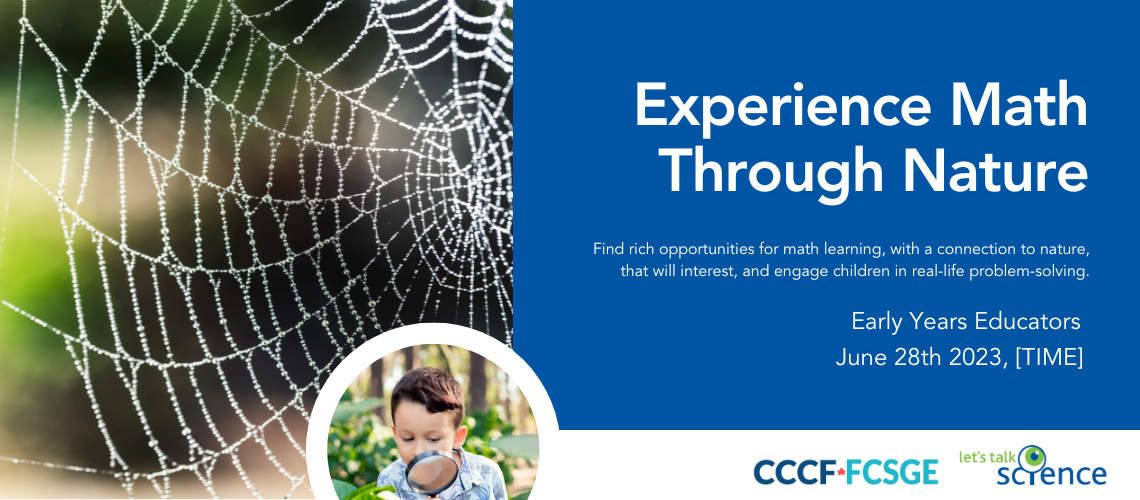Summer is just around the corner and there is no better time to explore the great outdoors with children. Nature is rich with things to entice and nurture young minds. It is the perfect setting to start their foundations in subjects like mathematics and science.
So how can you use math to create a fun and exciting outdoor experience for your children?
Through hands-on and playful exploration with open-ended questioning, children start to develop a deep understanding of mathematical concepts such as numbers, geometry, and spacial sense at a young age. Math is everywhere in nature! Whether it is a tree that is shaped like the number four or counting the number of leaves on a tree – you just have to show kids where to look. It’s easy to create wonder and excitement about math simply by tapping into the curiosities of a young mind.
Take an afternoon and bring children out into nature to complete our “Math Concept Scavenger Hunt” or find new ways to inspire them to engage with basic arithmetic (for example: asking them if there are three ducks swimming together in a pond and two swim away, how many ducks are left?)
Engage their young minds through imaginative play and develop gross motor skills by tracing numbers and shapes in the sand with sticks or manipulating found objects in nature to create numbers. Take this further and invite them to sort leaves by their shapes and sizes.
Encourage children to see things from different perspectives by looking at things from above (looking down at a flower), getting eye-level with the object, and peering from under it. Do things look the same? How are they different? Have them explain it to you. Through hands-on exploration, they are able to start developing an appreciation and understanding of mathematical concepts such as number sense, basic geometry, and spatial awareness.
Studies show that introducing STEM concepts at a young age (starting as young as one-year-old) can greatly impact their interest level in the long run. We encourage educators to use different ways to inspire children to engage with nature in a mindful and respectful way. For example, encourage them to only pick things off the ground to mitigate any wildlife disruption by not pulling leaves off trees or disturbing wildlife.), or take a camera on your scavenger hunt to capture math in nature, record their learnings, and minimize the impact on our environment.
CCCF has partnered with Let’s Talk Science to host a webinar called “Experience Math Through Nature” to encourage youth to engage with the outdoors differently: through inquiry and math exploration.
Missed the live event? Watch the replay and follow the instructions to earn a digital badge and downloadable certificate by self-enrolling in this free course on Let’s Talk Science’s learning management system, Canvas. Explore the course catalogue for more free professional learning opportunities and start your journey to become a STEM Certified Educator.
Be sure to tag @CCCF_FCSGE and @letstalkscience on Twitter or @CanadianChildCareFederation on Facebook if you take the classroom outdoors and show us what you have found!












